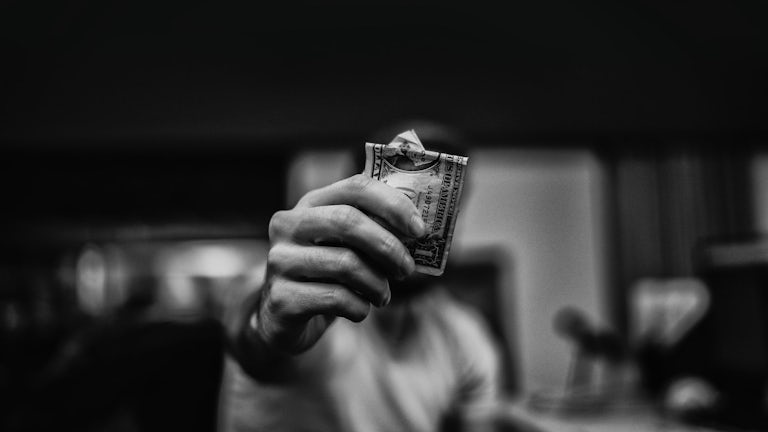Shopping Bag (0)
Shopping bag is empty


'Free money' could cement the shift from value to values
Question: What do modern-day Iron Man Elon Musk, conservative president Ronald Reagan and Nobel Prize-winning economist Angus Deaton all have in common?
The beginning of a bad joke? Or a relationship to an economic idea as divisive as it is unifying?
Answer: The latter. All were fierce advocates of Universal Basic Income (UBI) as a healing balm to an economy where A.I. and automation could take one-third of all jobs by 2030—a time when brands face an uncertain future.
UBI was proposed as a way to reduce the poverty gap and stimulate the economy by giving every citizen a regular sum of money regardless of income, resources or employment status. Small trials have successfully run in the past (GiveDirectly's 12-year Kenyan trial, Ontario and Madhya Pradesh's basic income pilots, the Alaska Permanent Fund and so on), and the tiny Himalayan state of Sikkim in India will be the first to implement UBI to its 611,000 residents by 2022.
Regardless of how you feel about UBI, what would a future with it mean for brands and the way we spend?
The psychology of spending (and common sense) dictates that the way we see "free money" changes the way we think about purchasing, value and brands.
Currently, whether you are a white- or blue-collar worker, choosing products based primarily on value is becoming more and more socially acceptable. In fact, in the era of Amazon, Aldi and Costco, there's a desirable savviness to making certain purchases based on price rather than brand.
Years of economic downturn have spawned a generation of make-your-own-ers and repurposers. We're discovering there's magic to creating, salvaging and minimizing, rather than purchasing. And armed with newfound knowledge, we're looking beyond labels to see what is actually in the things we buy.
This consumer mind-set is also driving the brandlessness trend, where people who can afford to purchase brands choose not to, focusing instead on ingredients over packaging; product over name.
When we do spend on brands, we hold them to a higher standard—whether ethically, environmentally or socially. This can inevitably only hike prices up, making it harder to reconcile responsibility and affordability, two trends that seem to conflict.
Yet, in a future where the first $1,000 of your income every month is "free," the situation changes significantly. If spending power becomes more democratized at a time when people want to make more responsible purchasing decisions across the board, marketers' focus could shift from value to values. And brands would be forgiven for raising the prices of products to meet these demands for purpose.
If you could make meaningful environmental, ethical or societal change with every purchase of a particular brand, even if it cost a lot more than your Aldi counterpart, odds are that, with your "free" money, you would. It's human nature to seek balance with something as vilified as the consumerist lifestyle.
Trials show that UBI gives people a renewed sense of hope and accountability for the future, while evening out disposable income. This is a magic formula when it comes to tackling significant societal and environmental issues. Of course, the further you get from subsistence, the easier it is to think of others (and a growing body of science points to how essential friends, family and community are to physical and mental well-being).
So rather than being a short-lived marketing bandwagon, perhaps "purpose" is here to stay. In fact, purpose-driven brands may well be the only ones to survive a future where the retail landscape is completely revitalized, with responsibility at its core. Brands could become change-makers in a world where policy is left not only to governments, but made, one purchase at a time, through brand allegiance.
UBI could prove to be a strong brand ally and a key driver for the positive change we so desperately need to see in this world. I for one would love to see every brand held accountable for the cost benefit of their existence, granting every person the choice of which brand, cause and future they want to support.